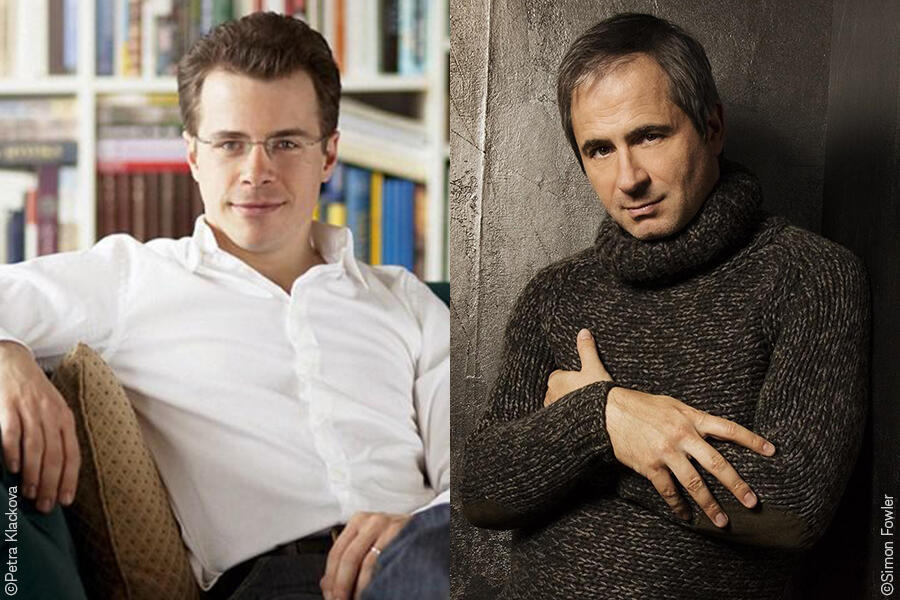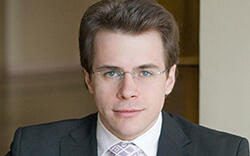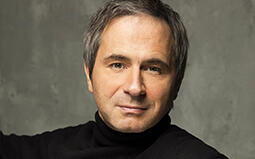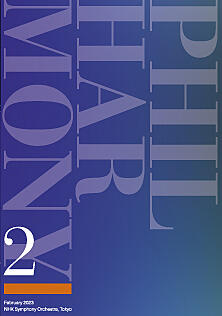- Home
- Concerts
- Subscription Concerts 2022-2023
- Program B
- No. 1979 Subscription (Program B)
No. 1979 Subscription (Program B)

Program
Dvořák / Hussite Overture, Op. 67
The Czech composer Dvořák had a turning point in 1875 receiving a grant from the Austrian government. His talent was soon spotted by a part of the jury, Johannes Brahms, who helped in spreading Dvořák’s fame in the late 1870s.
During the early 1880s, the now-up-and-coming Dvořák penned some patriotic works including the Hussite Overture, coupled with rising Czech nationalism of the period. It was initially composed for a theatrical trilogy on Jan Hus and his followers called Hussites. As the project collapsed, only Dvořák's Overture was revealed at the 1883 opening event of the rebuilt Prague National Theater. The Bohemian theologian Hus is a precursor of Protestant Reformers. After he was executed in 1415 for heresy, the Hussites resisted Catholic crusades for over a decade, which is known as the Hussite (or Bohemian) Wars. Dvořák quotes two renowned tunes at the introduction of the Overture: the heroic melody from the Hussite hymn You're God's Warriors, and the lyrical melody from the church hymn St. Wenceslas Chorale (Wenceslas is the Catholic saint and Czech nation's saint patron). The two themes come into collision during the main section, however, Dvořák, both patriot and devout catholic, reconciles them at the festive conclusion.
[Kumiko Nishi]
Szymanowski / Symphony No. 4 Op. 60, Symphonie concertante*
Like Stravinsky (1882–1971) dubbed "Chameleon," Szymanowski changed styles with the times. Born to a Polish noble family in Ukraine and mainly trained in Warsaw, the latter was first influenced by Chopin and Scriabin but also German Romantics such as Brahms, Wagner and R. Strauss. Though Szymanowski's middle period showed effects of French Impressionism and Stravinsky, the Polish composer later inclined towards neo-classicism into which he injected his own modern sense.
Dating from this final phase, Op. 60 is Szymanowski's last symphony and his only piano concerto. He wrote it in 1932 for himself to play the solo part, as he was in financial need since he left the post of director of the Warsaw Conservatory. The 1932 premiere took place successfully in Poznan´, Poland with him as soloist who then toured in Europe reperforming it.
As the subtitle indicates, this work is a mixture of two classical genres. It is a three-movement concerto with cadenzas (pianist's virtuosic solo without orchestra), but the soloist is often merged in the colorful symphonic orchestra rather than being merely accompanied by it. Although the initial free-sonata movement constantly changes meters, it sounds flowing smoothly. It opens with the wavelike weightless first theme given by the pianist's both hands in unison over strings' pizzicato. This main theme would be recalled by flute solo and then piano towards the end of the nocturnal second movement. After its brief cadenza, the rhythmical third movement follows without pause, where the bouncing recurrent theme with repeated notes first appears in the piano's low register. This finale's lively sections are reminiscent of oberek, a triple-meter Polish folk dance with quick steps and turns.
[Kumiko Nishi]
Brahms / Symphony No. 4 E Minor Op. 98
In Brahms' lifetime, the Viennese musical world was split into two camps: simply put, the conservatives worshipping his classicism against the progressives adoring the "future music" of Wagner (1813–1883). However, Brahms' approaches, seemingly traditional and archaic, were in all truth innovative and forward-looking to influence younger composers such as the modernist Schönberg (1874–1951) who wrote the essay "Brahms the Progressive."
While the "classical" symphony as genre was on its last legs after Beethoven (and Schubert), Brahms in the Romantic era gave his four answers all different to it. With the Fourth completed in 1885 when he was 52, he looks back at the past the most – the Baroque era and even earlier time – adopting the Beethovenian classical four-movement form. Interestingly, the Fourth has the unhappiest ending among all his symphonies, starting and culminating in a minor key against the example set by Beethoven whose Fifth (Destiny) attains, through minor darkness, the victorious major denouement.
The sonata movement in E minor – a main tonality rarely chosen for symphonies in general – begins Brahms' Fourth. He minutely builds out the whole movement of the opening descending two-note motif, no exception being the intermittent "heavily sighing" first theme given by violins at the start. Cellos and horns reveal the second theme over staccato accompaniment which has often been likened to the tango. The next slow movement starts solemnly with the horns' melody in a medieval church mode. The gusty third movement is the first scherzo Brahms wrote for the genre of symphony following Beethoven, however, here Brahms surprises us doubly with his "duple-time" scherzo in "sonata form." The finale is a colossal passacaglia, a form typical of the Baroque era of continuous variation on a given theme (usually a bass line). At the outset, the winds announces in a high range the eight-chord theme which is said to be inspired by Bach's Cantata BWV150 For Thee, O Lord, I long. Thereafter come thirty-two variations and a coda where Brahms' masterly symphony ceases on a fervent E-minor chord.
[Kumiko Nishi]
Artists
 ConductorJakub Hrůša
ConductorJakub Hrůša
Jakub Hrůša has been continuing to expand his career of conducting both orchestral concerts and operatic works by approaching music with a sincere attitude and skillful and passionate conducting. His term as Chief Conductor of the Bamberger Symphoniker has been extended until 2026, while in Britain, his assuming the post of Music Director of the Royal Opera House Covent Garden from the 2025 season has been announced. In the summer of 2022, he conducted Katja Kabanova, an opera by Janáček, at the Salzburg Festival.
He was born in 1981 in Brno, the central city of Moravia, in the Czech Republic, and studied under Jiří Bělohlávek at the Academy of Performing Arts in Prague, and continued further studies with Radomir Eliška. His first visit to Japan was in 2006, and in 2010, he conducted Má Vlast (My Fatherland) at the opening concert of the Prague Spring International Music Festival, and in the same year, he was appointed Chief Guest Conductor of the Tokyo Metropolitan Symphony Orchestra, the post he continued to serve until 2018. He was received warmly when he guest-conducted the Royal Concertgebouw Orchestra in Amsterdam, and also for Janáček’s Makropulos Affair at the Wiener Staatsoper.
He made his subscription concert debut with the Berliner Philharmoniker in 2018 and with the Wiener Philhamoniker in 2019, and also has a strong bond with North American orchestras.
He is currently Chief Conductor of the Bamberger Symphoniker, Chief Guest Conductor of the Czech Philharmonic and L'Orchestra dell’Accademia Nazionale di Santa Cecilia in Rome. He has an extensive discography, and in 2022, his recording of Symphony No.1 by Hans Rott, a genius composer who died young, was released.
His first appearance with the NHK Symphony Orchestra was in 2019 when he conducted the April subscription program A.
[Yoshimichi Okuda, music critic]
 PianoPiotr Anderszewski*
PianoPiotr Anderszewski*
Piotr Anderszewski was born in Warsaw in 1969 to a Polish father and a Hungarian mother. Despite his withdrawal from the 1990 Leeds International Piano Competition, Beethoven’s Diabelli Variations he played in the semi-finals drew attention, and eventually he made his professional debut by having a recital at London’s Wigmore Hall in February in the following year. He has frequently visited Japan, and in his last visit in 2021, he broke new ground by playing works from his album of Bach’s Well-Tempered Clavier, Book 2 (Selection), which he recorded prior to his visit. He always takes a cautious stance for his repertoire thus concentrating on limited works by composers including Bach, Mozart, Beethoven, Webern, Chopin, Schumann, Janáček, and Bartók. Having a self-proclaimed "ambiguous existence with various contradictions," he has become particularly deeply attached to Szymanowski, a Polish genius, and in 2004 he recorded some of the composer's works including Piano Sonata No. 3, which brought him the British Gramophone Award.
The Symphonie Concertante he will perform on this visit is the work he most ardently cherishes. He performed it with the orchestra back in 2006 under the baton of Charles Dutoit and this time he will shed a fresh light on the work together with Jakub Hrůša. He last appeared in 2015, and this is his 3rd collaboration with the NHK Symphony Orchestra.
[Takaakira Aosawa, music critic]
Download
Ticket
Program B
No. 1979 Subscription (Program B)
Suntory Hall
Google Map
Seating Chart
Single Tickets Release Date
Pre-sales for Subscribers:Thursday, October 27, 2022
*about subscribers
Sale to General Public:Sunday, October 30, 2022
Price
| S | A | B | C | D | |
|---|---|---|---|---|---|
| Ordinary Ticket | 8,900 | 7,400 | 5,800 | 4,700 | 3,700 |
| Youth Ticket | 4,000 | 3,500 | 2,800 | 2,100 | 1,500 |
Seating chart Enlarge Print PDF
*tax included
*About Youth tickets (Available at N-Kyo Guide)
*Subscribers receive a 10% discount (Available at NHKSO WEB Ticket and N-Kyo Guide)
*For wheelchair-accessible seats, please refer to the N-Kyo Guide
Starting Dates of Ticket Sales
ANNUAL SUBSCRIPTION TICKETS Mon., July 18, 2022 11:00am
[For Subscribers: Thu., July 14, 2022 11:00am]
Youth Tickets
Youth Tickets are great options for those of 25 years old and younger
WEB Select 3 Plus
Choose three or more of your favorite concerts and get a discount on single tickets
*Only available at NHKSO WEB Ticket NHKSO WEB Ticket (Accesible from Japan only)
For further information and subscription application
N-Kyo Guide TEL:0570-02-9502
Broadcast
 NHK Educational TVClassical Concert Hall
NHK Educational TVClassical Concert Hall
No. 1979 Subscription (Program B)
Sunday, May 21, 2023 9:00PM - 11:00PM
Program:
Dvořák / Hussite Overture, Op. 67
Szymanowski / Symphony No. 4 Op. 60, Symphonie concertante*
Brahms / Symphony No. 4 E Minor Op. 98
Conductor:Jakub Hrůša
Piano:Piotr Anderszewski*
Recorded:February 15, 2023 Suntory Hall
To watch a concert,
(accessible only from inside Japan)
(accessible only from inside Japan)


